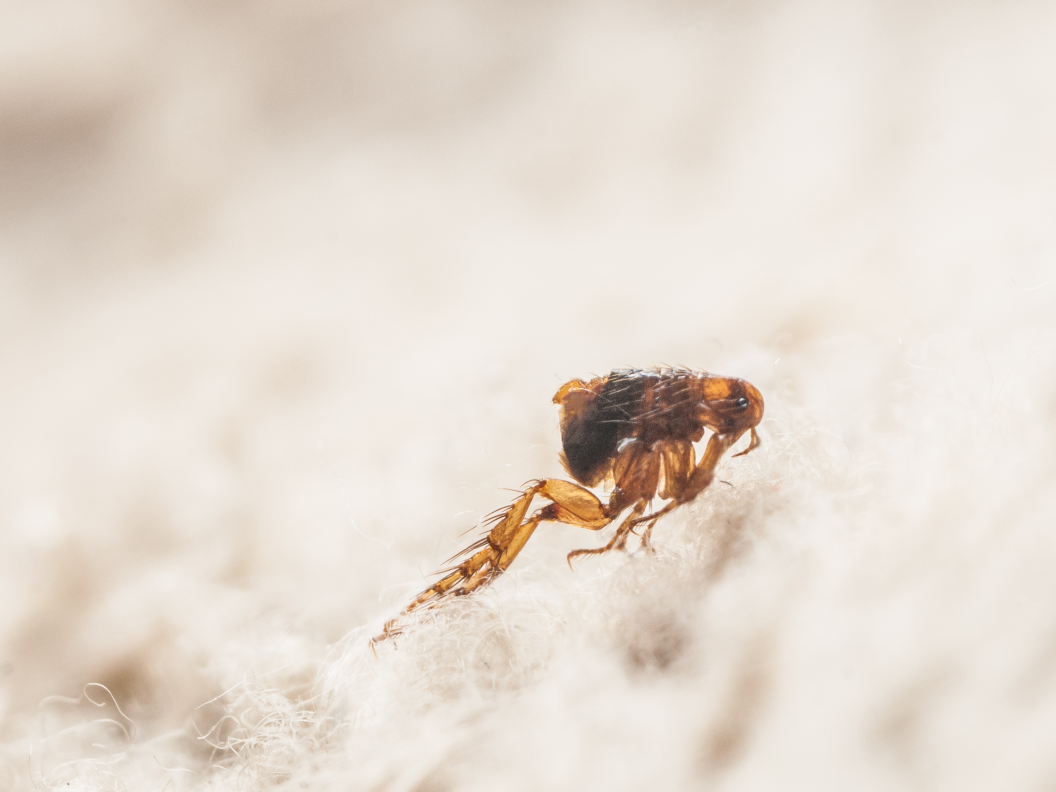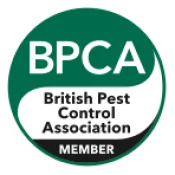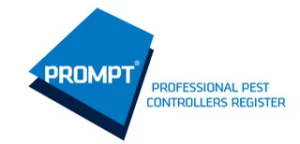Flea Pest Control

Flea Pest Control
Fleas are a very common issue in many homes, especially if you have cats or dogs. Bear in mind, though that you can get an infestation of fleas and not have a pet. It is estimated that there are around 2,500 different species of flea worldwide but in the UK we only see 4 types of flea: The cat flea, which is the most common, the dog flea and rarely the human flea and bird flea. They all share one thing in common; they feed on the blood of the host, be that a cat, dog or human. Flea bites can be very irritating and itchy for both our pets and for us humans. There is often a stigma associated with fleas, a common misconception is that fleas only target unhygienic areas. This is far from the case and fleas will happily infest any home or business.
Fleas are most common in the summer as the temperature and humidity are ideal for the flea life cycle. Female fleas can live up to 2 years and lay around 1,500 eggs in that time.
Flea Infestations
Fleas tend to live on their host, but their eggs and larvae are equally at home within the home itself and in the garden. Flea Larvae are 3 – 5.2mm in length and are a dirty white colour.
Spotting a flea infestation is usually rather easy as the fleas themselves are very visible either jumping on you, jumping around your home or even pretty obvious in your pet’s fur. In addition, you pet will probably be scratching a lot and may lose their fur through the irritation and scratching. Fleas should be dealt with quickly as some pets can develop an allergic reaction to the flea’s saliva.
In cats, fleas tend to target the head and neck areas so that’s where you should check and with dogs it tends to be the hind quarters which are targeted. When you check your pet or even your pet’s bedding you will also see small black droppings very much like little specks of pepper. If you add water to these droppings and they go red, then it’s definitely flea faeces.
If you are unlucky another sign is bite marks on yourself or other family members.
Preventing Fleas
The first thing is to ensure your pet and home are flea free in the first place. Regularly groom your pet and also treat them, especially during the summer months with vet recommended flea treatment. It is important that the treatment is vet recommended as some ingredients in dog flea treatment are toxic to cats, for example.
Regular vacuuming will also help prevent flea infestations as will regularly washing your pet’s bedding. After vacuuming remember to empty and dispose of the bag.
One thing you might not think of is gardening. A tidy, well mown and clear garden will give fleas fewer external hiding places.
Flea Pest Control
Fleas aren’t particularly difficult to get rid of but simply treating your pet will probably not deal with the whole infestation as flea eggs can fall off your pets onto carpets, pet beds and other soft furnishings. If you think you have a flea infestation, get in touch with iX5 Pest Control immediately. We will conduct a thorough survey and detail our recommended solutions, including advising on preventative measures. We use a range of control strategies depending on various factors such as the location, the extent of activity, and any sensitive receptors or non-target species.
We offer Flea Pest Control services for domestic premises and businesses in Northampton, Daventry, Rugby, Market Harborough, Towcester, Brackley, Wellingborough, Kettering, Corby, Olney and all of the surrounding areas. Our team of specialists are available both evenings and weekends at no extra cost. Should you require assistance call us on 01604 328545, email [email protected] or use our simple contact form.
iX5 Pest Control
- 7 Days A Week Service
- Weekend & Evening Appointments
- Domestic & Commercial Pest Control
- Contactless Payment Methods
- Comprehensive Initial Survey










